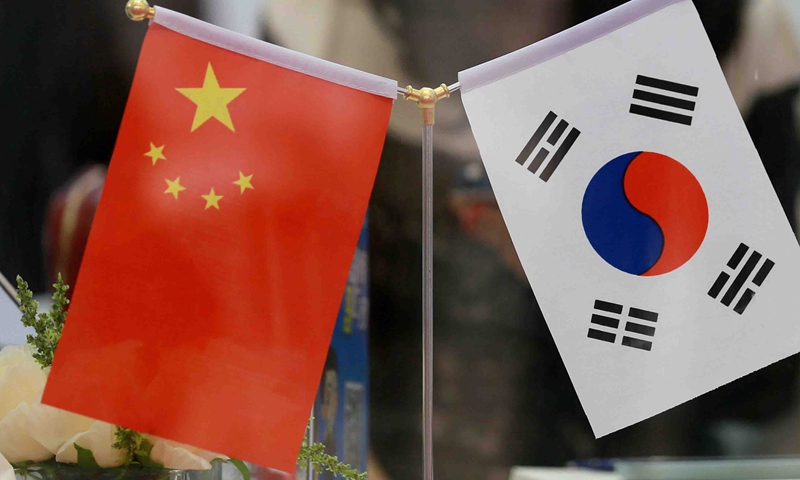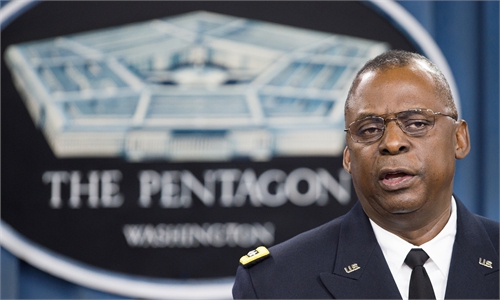Will Seoul be sandwiched between Washington and Beijing?

China South Korea File photo:CGTN
The recent interactions between China and South Korea and between South Korea and the US have raised the eyebrows on the trajectory of this triangular relationship.Chinese President Xi Jinping had a phone conversation with South Korean President Moon Jae-in on Tuesday and called on lifting the China-South Korea strategic cooperative partnership to a new level.
Earlier, new US defense chief Lloyd Austin called on key US allies including South Korea to boost defense ties, and new US national security adviser Jake Sullivan said the South Korea-US alliance was a "linchpin" of peace and security in the Indo-Pacific region.
China and South Korea are important partners and their two-way trade last year managed to grow amid broad downward pressures. Both countries have maintained close connections in terms of exchanges of people and culture, plus jointly battling the COVID-19 epidemic.
The Moon administration attaches great importance to the role China has played with the Korean Peninsula nuclear issue. It is believed to still have expectations on China with this issue. As such, overall Beijing-Seoul relations are expected to be strengthened in the future.
US President Joe Biden has vowed to strengthen the US alliances in the Asia-Pacific region. He wants a coalition of the so-called democracies to counter China. South Korea will certainly be one of the countries the US will strive to rope in. The Biden administration is anticipated to work more closely with Seoul to solve the Korean Peninsula nuclear issue. Some Chinese analysts have expressed their concern over the arrival of an "Asia Pivot 2.0" strategy and what it will mean to Asian security.
Within the next few months, the main focuses of the Biden administration will still be domestic issues - including correcting his predecessor Donald Trump's policies, increasing COVID-19 prevention and treatment efforts, and boosting economic recovery. Regarding diplomatic issues, the Biden administration may prioritize US-China relations, and then later address issues regarding US-South Korea relations.
The divergence over the cost of stationing US troops in South Korea was one of the main spats between the two countries during the Trump era. As Biden seeks to strengthen US alliance with South Korea, this friction might be eased under his presidency. But from a long-term perspective, this is a structural challenge and could not be easily tackled.
There are concerns over Seoul becoming sandwiched between Beijing and Washington. This issue appeared as early as in 2008 when Beijing and Seoul announced that they were upgrading their relationship to a "strategic cooperative partnership." The US has worried that if South Korea gets too close with China, it will impact the balance of power in the Asia-Pacific region.
South Korea is trying to obtain economic gains from China and security guarantee from the US without offending either of them. Washington's influence on Seoul is slightly bigger than Beijing's. If Washington piles considerable pressure on Seoul, the latter may tend to lean toward the former. If there is a scenario where South Korea is propelled to take sides, Seoul is not capable of coping with such a situation.
The most recent example was South Korea's approval of deploying the Terminal High Altitude Area Defense system under US pressure in 2016. As a consequence of the deployment, South Korea's relations with China were deeply undermined. Then Chinese Foreign Ministry spokesperson Geng Shuang warned in 2017 that China would "take firm and necessary steps to safeguard its security interests." South Korean products witnessed an unprecedented boycott by the Chinese public and South Korean tourism suffered huge losses. The Blue House devoted great efforts to restore its ties with China. This is a typical example that demonstrates Seoul's sandwiched position between Beijing and Washington, and lack of a proper approach to address this situation.
Some analysts have said the Moon administration's New Northern Policy somewhat echoes the China-proposed Belt and Road Initiative, and its New Southern Policy partly appeases the US' Indo-Pacific Strategy. This shows Seoul's delicate balance between Beijing and Washington. Against the backdrop of power transition in the US, the Moon administration will continue to try hard in this regard.
The author is professor of the Department of International Politics of School of Public Administration at Jilin University and an expert on Korean Peninsula issues. opinion@globaltimes.com.cn



